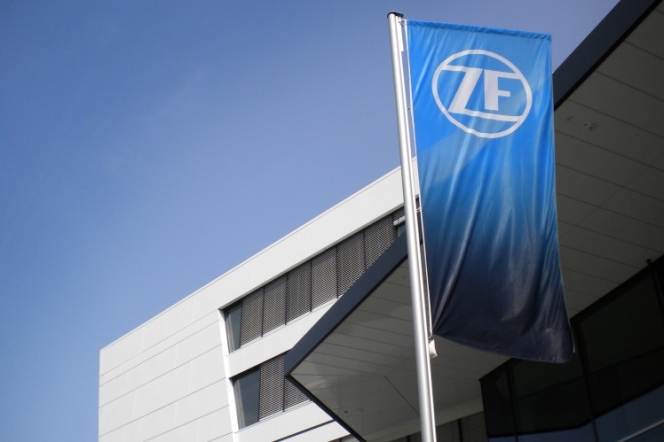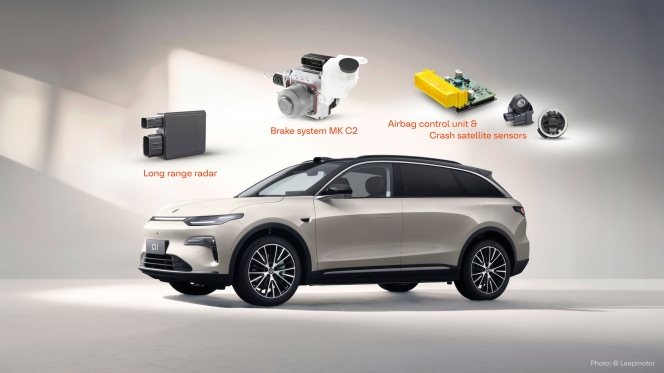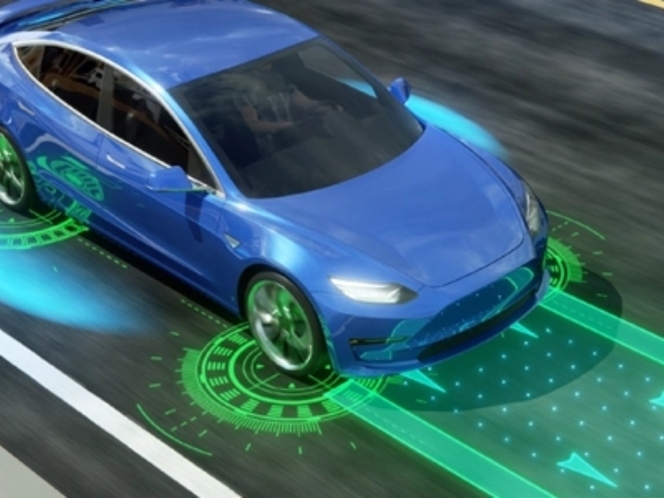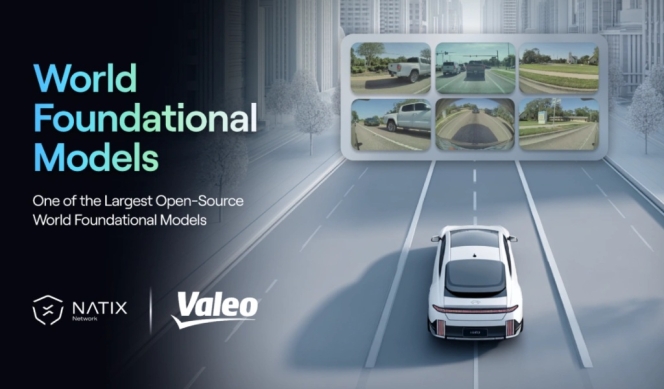
After three years, the Automotive Testing Expo will return to India in April 2023. The show will avail the platform to host the most up-to-date technologies in ADAS and autonomous vehicle testing, NVH measurement tools, test rigs, simulation packages, durability testing technologies, crash testing, dynamometers, emission measurement systems and dynamic assessment tools, as well as countless service providers such as proving grounds and test facilities. The German edition, which will take place between 13 and 15 June 2023 in Stuttgart, will be hosted on a bigger scale with expected exhibitors of more than 450.
In light of the evolving dynamics of the automotive testing industry, organisers of the upcoming Automotive Testing Expos in Germany and India are placing big bets on the events.
The Indian edition of the Automotive Testing Expo will take place between 18 and 20 April 2023 in Chennai, while the German edition will happen between 13 and 15 June 2023 in Stuttgart. Apart from these two editions, the show will be hosted in Korea, China and US.
Tony Robinson, Founder and CEO of UKIP Media & Events, said, “After three years, we are once again hosting the Automotive Testing Expo in India. It is a long gap. We received a terrific response when we announced a few weeks ago that we would return to Chennai in April 2023. Many very excited companies want to exhibit their new and existing technologies. We will find people in India who haven’t had a chance to see the new things available in the automotive testing industry. They will be very keen to come out and look at everything that’s on show in April next year. So we are excited.”
Automotive Research Association of India (ARAI), Automotive Test Systems, DEWESoft India Pvt Ltd, Keysight Technologies India Pvt Limited, MTS Systems Corp and National Instruments are others who have confirmed their participation. In 2020, the Indian edition of the Automotive Testing Expo hosted 125 exhibitors and the same number is expected for the upcoming edition.
The Germany show did not take place in 2020 and 2021 thanks to the Covid pandemic. However, the show came back in 2022, which Robinson terms as a ‘fantastic show’. “Visitors came to the show for three days to see the latest technology in action and to learn about their uses and advantages. I would expect it’ll be even more fantastic in 2023. We expect to see more people come in because this year there has been a transition between the pandemic and people coming out and feeling comfortable,” added Robinson.
The Stuttgart Automotive Testing Expo, which takes place concurrently with a show on ADAS and autonomous vehicle technology, is expected to include between 450 and 500 exhibitors. “As a result, all major players are back in operation and prepared to display. There will also be numerous new businesses and start-ups along with the established major automakers,” said Robinson. The last edition in Stuttgart witnessed over 300 exhibitors.
Leading companies such as Anthony Best Dynamics; Applus+ Laboratories; DEKRA; DEWESoft GmbH; Diversified Technical Systems, Inc.; dSPACE GmbH; Keysight Technologies; Link Engineering Company; MTS Systems Corporation; National Instruments Germany GmbH; Robert Bosch; Rohde & Schwarz GmbH & Co KG; Siemens AG; ZF Friedrichshafen AG; SGS; TUV SUD Product Service GmbH; Michigan Scientific; Photron and others will exhibit at the Stuttgart show.
Despite the challenges brought on by the Covid pandemic, the organisers are closely monitoring the shifting trends in the automobile and automotive testing industries, which aids in their show planning. “Our job is to make sure we keep an eye on the developments and track down the new businesses that are entering the market. And we always act in that way. We take care to stay in touch with the important figures in the field of automotive testing engineering. We are dealing with a highly specialised community, so it’s essential that we are tracking and communicating and discussing with the automotive testing teams that cover many different facets of engineering. Our responsibility is to establish connections with all of the new businesses that are entering the sector. When marketing an event, we are in touch with the right people. It’s not frightening; it’s just what we do,” explained Robinson.
The shifting focus of the global auto industry from ICE vehicles to electric, autonomous and shared vehicles presents a wide range of opportunities and challenges, and this transition reflects on automotive testing as well. “The automotive testing market is exciting and in transition. We have been in the automotive testing world for nearly three decades, and any industry will have a transition. There’s no evidence that the big players are dropping by the wayside. Companies that are very ICE testing-oriented are not likely to come out exhibiting. This is not a great period for them. But then again, the rise of the battery car and battery testing (and range testing) and a lot of other things that we’ve been talking about, like AI and simulation, are things that are bringing new companies in,” added Robinson.
Robinson asserts that the complexity of automobile testing technologies and systems is drastically increasing, pushing the industry for automotive testing very hard. The newest products, services and technology are displayed at the automotive testing expos to help test, development and validation projects move more quickly. Robinson further explained, “The word I tend to use is fidelity. Automotive testing is a relatively young industry; if you go back even to the 1960s and 1970s, a lot of automotive testing was done in real life – physical testing of cars, natural crash testing of cars with human drivers. As the computer and IT industry developed and blossomed, a fascinating automotive test and development engineering industry grew. Higher and higher levels of fidelity are required in automotive testing for infinite and finite environments. We’re in an environment where everything is pushing automotive. Obviously, the electric and hybrid vehicles and batteries themselves need a lot of testing. The range needs a lot of testing. Autonomous vehicles push the boundaries to a completely new level. The growing penetration of software, sensors and AI is giving rise to a whole new range of companies that can enter the industry.”
“In a number of our shows, we have low-cost, smaller booths to enable starts-up and innovation companies, new companies to come to the event without having to spend a lot of money,” added Robinson.
ZF, BMW Sign Long-Term Supply Agreement For Drive Technologies
- By MT Bureau
- February 03, 2026

German tier 1 supplier ZF Friedrichshafen and the BMW Group have entered into a long-term supply agreement for passenger car drive systems. The contract, valued at several billion euros, extends until the late 2030s.
The agreement focuses on the supply and continued development of the 8-speed automatic transmission (8HP). The partners aim to support low-emission mobility and maintain technological flexibility during the industry transition.
A central component of the partnership is the technical evolution of the 8HP transmission kit to meet the requirements of electrified drives. The development will focus on increasing efficiency and performance for future vehicle concepts.
Mathias Miedreich, CEO of ZF, said, “Together with BMW, we are sending a strong signal for innovation, efficiency, and sustainability in an industry undergoing dynamic change. This agreement highlights the strategic importance of our 8-speed automatic transmission as a key technology for the transformation of drive systems.”
The duration of the contract provides both ZF and BMW with planning stability in a changing market. ZF aims to strengthen its position as a system supplier while reducing risks through close collaboration with the carmaker.
Sebastian Schmitt, Head of ZF's Electrified Drive Technologies division, explained, “The new agreement with BMW shows how important long-term planning horizons are for technological advancements. It creates clarity and stability for both companies and enables us to align the next generation of the 8HP specifically toward efficiency, performance, and long-term viability.”
Leapmotor Selects Aumovio For Safety Technologies
- By MT Bureau
- February 02, 2026

Aumovio has entered a supply agreement with Chinese electric vehicle manufacturer Leapmotor to provide safety components for the carmaker’s B and C platforms.
Several models within Leapmotor’s B platform now utilise Aumovio's long-range radar, electric parking brake and airbag control unit (ACU). Models on the C platform, including the C10, C11 and C16 SUVs, feature the latest generation of the MK C2 one-box brake system, alongside the long-range radar and ACU.
The project was completed with a development cycle approximately one-third shorter than traditional automotive timelines. Aumovio attributed its speed to ‘local-for-local’ strategy in China, where the company operates 20 sites and employs around 10,000 staff. In 2024, Aumovio held a 14 percent share of market revenue in the region.
The supplied technologies include:
- MK C2 Brake System: A unit combining the master cylinder, electronic brake system, and brake booster. It is produced locally in Shanghai.
- Long-Range Radar: A sensor with a detection range of up to 280 metres, used for driver assistance across both platforms.
- Airbag Control Unit (ACU): Integrated with crash satellite sensors, these components are manufactured in Changchun.
Boris Mergell, Head of the Safety and Motion business area at Aumovio, said, “Pairing ‘China speed’ with ‘German quality’ technologies helped us to support a rapid roll-out with our latest safety technologies. This underscores Aumovio’s course towards an adaptive powerhouse that works flexibly and closely with customers to innovate. It also shows that we continue to strengthen our customer relationships in the important market China.”
The partnership supports Leapmotor’s international presence. The B10 and B05 models, which feature Aumovio's ACU and radar technology, were showcased at the IAA 2025 in Munich as part of the manufacturer's European entry.
LTTS Secures Multi-Year Deal From Automotive OEM For Engineering And R&D
- By MT Bureau
- January 28, 2026

Bengaluru-headquartered ER&D company L&T Technology Services (LTTS) has announced a multi-year engagement within its mobility segment from an automotive manufacturer. The agreement involves software, connectivity and digital engineering services across vehicle technology domains. This win follows the company’s investments in R&D labs and mobility infrastructure designed for programs with global manufacturers.
The engagement covers mobility engineering capabilities, including embedded systems, digital platforms, verification and validation, cloud integration and cybersecurity. LTTS intends to use its engineering expertise and delivery frameworks to support the customer's technology roadmap.
At present, LTTS operates 22 design centres and 100 innovation labs globally.
The agreement strengthens the partnership between LTTS and the automotive manufacturer in the area of mobility engineering. The company provides design, development, and testing services across the mobility, sustainability, and tech segments.
Alind Saxena, Executive Director and President, Mobility and Tech at L&T Technology Services, said, “We are proud to deepen our partnership with the valued customer through this strategic engagement. LTTS brings together domain-led engineering, secure development practices and excellence in global delivery to accelerate the future of premium mobility. The win reflects the trust placed in our teams and our commitment to delivering world-class engineering at scale”.
Valeo And NATIX Network Partner To Develop Open-Source World Foundation Model
- By MT Bureau
- January 25, 2026

French technology company Valeo and NATIX Network have announced a partnership to develop a multi-camera World Foundation Model (WFM). The project combines Valeo’s research in artificial intelligence and generative modelling with NATIX’s decentralised physical infrastructure network (DePIN) to create an open-source platform for autonomous driving and robotics.
The initiative aims to move beyond perception-based models by creating a system capable of predicting future states and reasoning about physical interactions in a four-dimensional environment. The model will be trained using NATIX’s data network, which has collected 600,000 hours of video data across the US, Europe and Asia over seven months. This data provides the multi-camera inputs necessary for the spatial perception required by autonomous vehicles and robots.
The partnership builds upon Valeo’s existing open-source frameworks, VaViM (Video Autoregressive Model) and VaVAM (Video-Action Model). While these frameworks were previously trained primarily on front-camera datasets, the integration of NATIX’s multi-camera network expands the AI’s field of vision to 360 degrees.
Under the open-source framework, the partners will release models, datasets and training tools. This approach is intended to allow the research community to fine-tune models and benchmark physical AI across various driving conditions and geographic regions. The collaboration seeks to accelerate the deployment of end-to-end AI models by learning from real-world edge cases captured by vehicles in operation.
Marc Vrecko, Chief Executive Officer, Valeo’s Brain Division, said, “Since our creation in 2018, Valeo’s AI research center has been at the forefront of AI research in the automotive industry, especially in the fields of assisted and autonomous driving. Our goal has always been to advance mobility intelligence safely and responsibly. By combining Valeo’s generative world modeling research expertise with NATIX’s global multi-camera data, we are accelerating both the quality and the accessibility of next-generation end-to-end AI models, enabling the research community to build upon strong open models.”
Alireza Ghods, CEO and Co-Founder, NATIX, added, “WFMs are a once-in-a-generation opportunity — similar to the rise of LLMs in 2017–2020. The teams that build the first scalable world models will define the foundation of the next AI wave: Physical AIs. With our distributed multi-camera network, NATIX has a clear advantage of being able to move faster than large OEMs.”







Comments (0)
ADD COMMENT